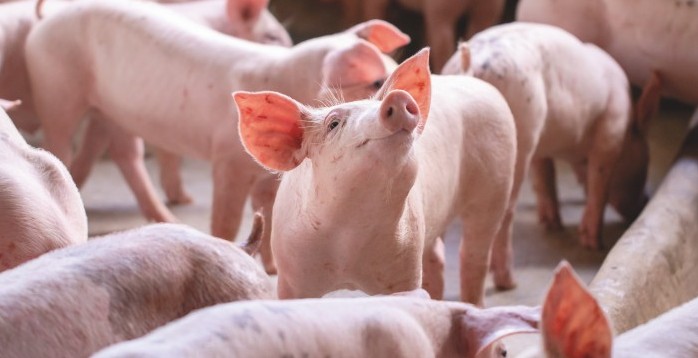Defra has confirmed that it will introduce new regulation to govern pig contracts, as it releases a summary of the responses to the consultation on contractual practice in the UK pig sector and sets out its next steps.
The Department has also stated that it will share its findings relating to the alleged negative consequences of market consolidation in the pork processing sector with the Competition and Markets Authority (CMA).
The consultation, which closed in October, received a total of 374 industry responses. Defra said these responses received have ‘demonstrated that there are legitimate concerns about the nature of business relationships in the UK pig sector’.
“There is a clear demand for a legislative solution, and evidence of a popular sentiment that legally required written contracts would remove the uncertainty and ambiguity which has underlain recent issues,” it said.
But it said there is a far weaker consensus regarding what mandatory written agreements should cover and whether these agreements should be standardised throughout the sector.
“A substantial number of responses stressed the need for a light-touch, flexible approach to any future legislation to account for the wide variation in business arrangements found in the sector. Producers also generally recognised that too much contractual rigidity could have unintended consequences on the market,” it said.
Among the key issues the consultation raised was ‘inconsistency in terms of the availability of supply chain data, with some areas well covered and others severely lacking’.
Inevitably in light of what happened during the pig backlog, respondents regularly provided evidence of poor contractual practice, including where pre-agreed pig numbers were ignored and producers were penalised for circumstances outside of their control.
Responses also suggested that there is an inherent unfairness in the imbalance of contingency requirements between producers and processors.
“Respondents suggest that all responsibility for dealing with unforeseen circumstances, and associated financial risk, is unfairly placed with producers,” it said.
There was also a strong consensus that action must be taken on dispute resolution, although various methods to achieving a successful outcome were referenced.
Next steps
Defra sets out its steps, which while short on detail, confirm its intention to introduce regulation to deliver a more balanced pork supply chain:
- We will share our findings relating to the alleged negative consequences of market consolidation with the Competition and Markets Authority (CMA).
- The UK government will commence work developing regulations for pig contracts, using the regulation making power in section 29 of the Agriculture Act 2020.
- These regulations will ensure written agreements are used between all producers and their buyers. We will work closely with industry to explore what other provisions, if any, should be mandated as part of these agreements.
- We will continue to engage with stakeholders to ensure that legislation works for all parts of the UK and incorporate special provision for differing circumstances, if necessary. Where there is no minister in place, as in Northern Ireland at present, we will continue to work closely with government officials.
- We will also develop regulations to collect and disseminate more supply chain data, particularly in relation to wholesale price transparency and national slaughter numbers. We will use the powers in sections 23 to 28 of the Agriculture Act to create such provisions in England. We will work with the devolved administrations on this issue, as this is a devolved matter.
The regulations will be developed using the regulation-making power in section 29 of the Agriculture Act 2020, with further engagement with industry to ensure that they meet the needs of the sector and properly address the challenges the sector faces.
Comment and reaction
Defra said these new regulations will help to bring stability and security to the pig supply chain, strengthening the sector’s ability to deal with the challenges currently being faced around the world, such as rising costs and labour shortages caused by global pressures.
Farming Minister Mark Spencer said: “The pig sector has faced unprecedented challenges over the last year, with rising costs and global labour shortages putting real pressure on producers and processors.
“We are committed to working with the sector, and the regulations set to be introduced will ensure fairness and transparency across the supply chain – from pig to pork to plate – to help the sector to thrive in the future.”
NPA Chair Rob Mutimer said: “We are very pleased that Defra has taken on board the very clear messages from the NPA and the wider industry about what needs to be done to fix our broken supply chain.
“For too long, producers have been treated poorly and contracts have not been worth the paper they were written on – and we have seen some disastrous consequences of that behaviour over the past two years.
“We believe the measures set out today, including legal underpinning for contracts that delivers a fair transparent and negotiable contract system, will help deliver a fairer and more sustainable environment for pig producers.”




